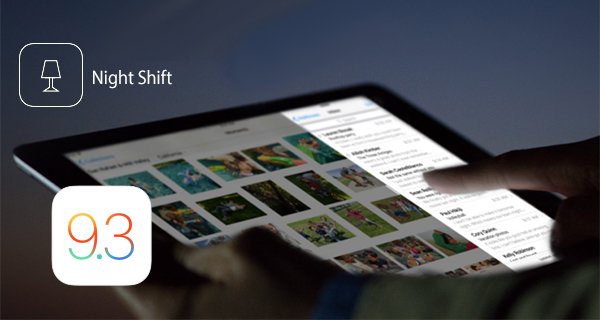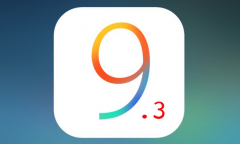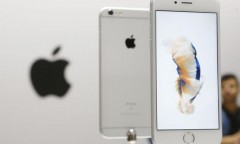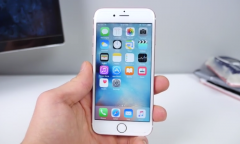By Steve Pak, | March 28, 2016

iOS 9.3 Night Shift
Apple's iOS 9.3 includes various new features for iPhones and iPads including Night Shift that dims a display to help people sleep better at night. However, there is no solid evidence that the color temperature of a smartphone's or tablet's display screen is the main reason mobile device users get less shut-eye at night.
Like Us on Facebook
Night Shift works by moving away from blue light spectrums, according to Mac World. Apple's website states that several studies have showed that night exposure to bright blue light can affect biorhythms and make it harder to fall asleep.
In iOS Night Shift is explained as a way to get a better night's sleep, but clinical studies do not show that mobile devices or bigger displays cause sleep problems.
Another issue is that Night Shift is unable to remove enough blue light to make a big difference if that hue is causing the sleep issues. Instead, a better option is to turn off mobile devices two hours before catching shut-eye, while a broader step would be to add warm lighting to areas in the house that are used before bedtime.
Circadian rhythms are a body cycle that control how the body works and repairs itself. It is about 24 hours in humans and uses many factors to keep people in sync. Being off track can cause problems such as illness, diabetes, and higher risks of cancer.
About two decades ago researchers learned that melatonin production helps people at night to get sleepy and stay asleep. Around two hours before a person's natural sleep cycle begins the body boosts its melatonin production when the body detects the darkest time of the day.
Dr. Ray Soneira is the president of the company DisplayMate that produces video-diagnostic hardware software. He shared that the blue would have to be remoted totally or much more than is allowed by mobile devices in order to improve people's sleep patterns.
In related news a study published last month found a link between Facebook use and sleep deprivation, according to Medial Daily. The University of California at Irvine (UCI) discovered a link between social media browsing and sleepiness.
Here are the top new features of iOS 9.3:
-
Use of Coronavirus Pandemic Drones Raises Privacy Concerns: Drones Spread Fear, Local Officials Say

-
Coronavirus Hampers The Delivery Of Lockheed Martin F-35 Stealth Fighters For 2020

-
Instagram Speeds Up Plans to Add Account Memorialization Feature Due to COVID-19 Deaths

-
NASA: Perseverance Plans to Bring 'Mars Rock' to Earth in 2031

-
600 Dead And 3,000 In The Hospital as Iranians Believed Drinking High-Concentrations of Alcohol Can Cure The Coronavirus

-
600 Dead And 3,000 In The Hospital as Iranians Believed Drinking High-Concentrations of Alcohol Can Cure The Coronavirus

-
COVID-19: Doctors, Nurses Use Virtual Reality to Learn New Skills in Treating Coronavirus Patients










